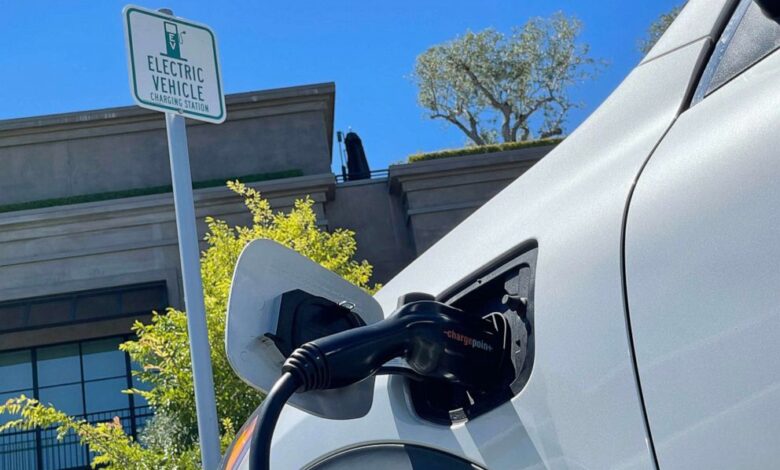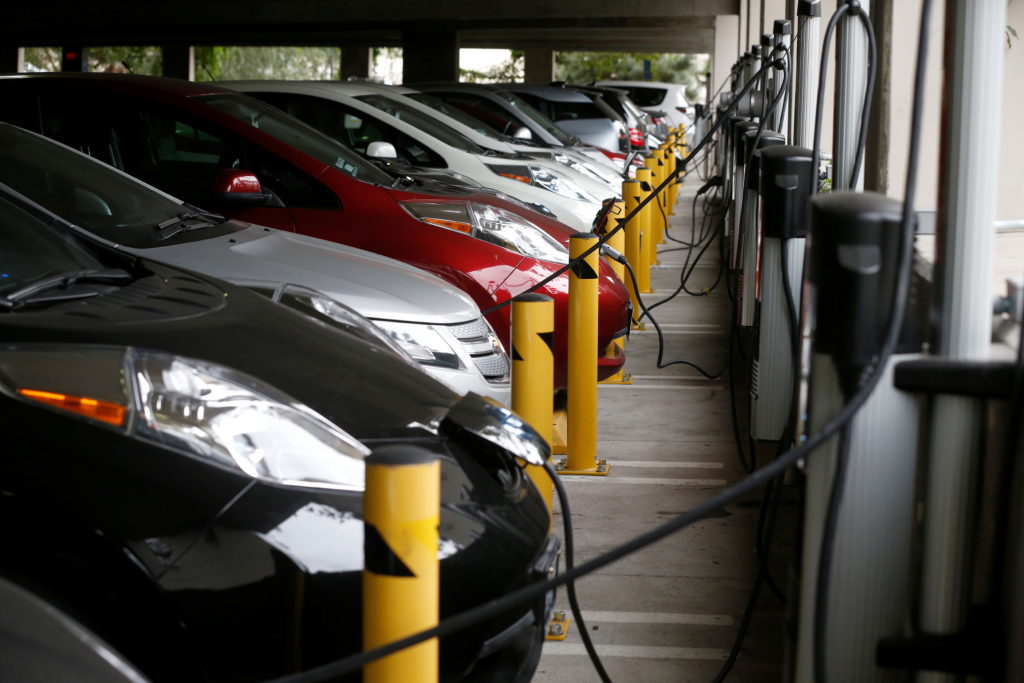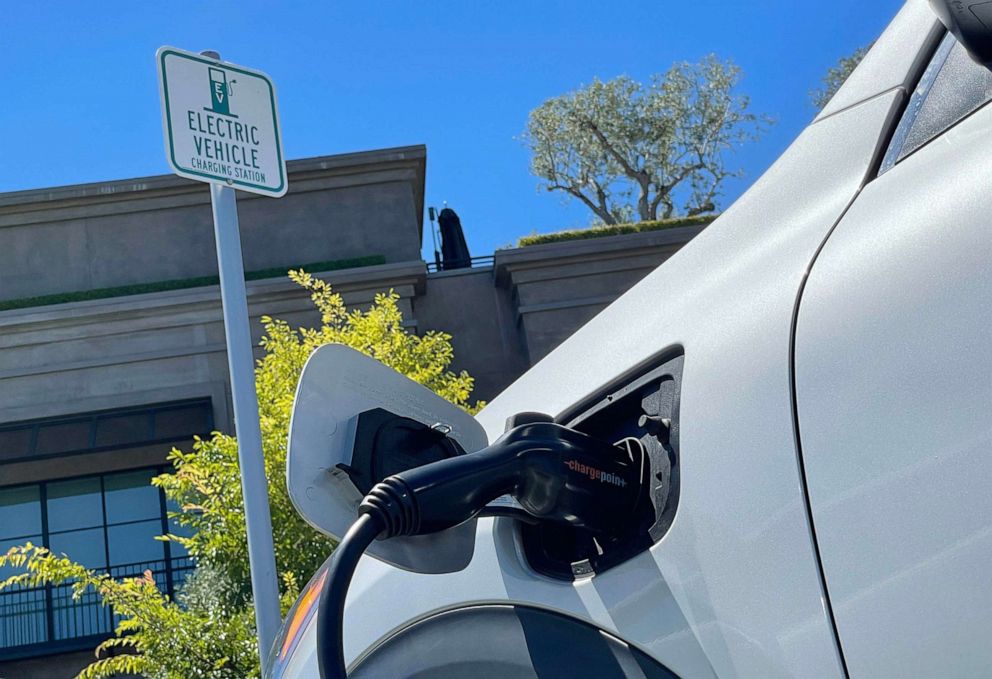
Maine Rejects Californias Electric Car Mandate
Maine pulls the plug on California inspired electric car mandates, a move that has sparked debate across the country. The state has chosen to reject a proposed mandate that would have required automakers to sell a certain percentage of electric vehicles in Maine, citing concerns about economic impact and consumer affordability.
This decision has drawn attention to the growing tension between states seeking to promote electric vehicle adoption and those who are hesitant to embrace the change.
The rejection of the mandate comes at a time when electric vehicles are gaining popularity nationwide. California, known for its aggressive environmental policies, has long been a leader in electric vehicle adoption. Its mandate, which requires automakers to sell a certain number of zero-emission vehicles, has influenced other states to adopt similar policies.
However, Maine’s decision highlights the growing resistance to such mandates, particularly in states with different economic and political landscapes.
Maine’s Decision
Maine has recently made headlines by rejecting a proposed electric vehicle mandate, choosing to not follow in the footsteps of California and other states pushing for widespread EV adoption. This decision, dubbed “pulling the plug” on the mandate, has sparked debate about the future of electric vehicles in the state and the role of government in promoting green technologies.
The Rejected Mandate
The proposed mandate would have required automakers to sell a certain percentage of electric vehicles in Maine, aiming to increase the availability and affordability of EVs for consumers. This mandate was modeled after California’s Zero Emission Vehicle (ZEV) program, which has been a driving force in the electric vehicle market for decades.
California’s program requires automakers to meet specific quotas for zero-emission vehicles, including battery electric vehicles (BEVs), plug-in hybrid electric vehicles (PHEVs), and fuel-cell electric vehicles (FCEVs). The program has been credited with boosting the development and production of EVs, making them more readily available to consumers.
Maine’s proposed mandate, while similar in concept, would have been tailored to the state’s specific needs and market conditions.
Maine’s decision to reject California’s electric car mandates is a bold move, highlighting a growing trend of states seeking autonomy in shaping their own energy policies. This isn’t just about cars; it’s about a broader shift in thinking, one that embraces innovation and redefines what’s possible.
Forget the “Great Resignation,” as the article forget the great resignation bring on the great reimagination argues, we’re entering a “Great Reimagination,” where individuals and states alike are challenging the status quo and forging new paths. This spirit of reimagination is evident in Maine’s decision, as they push for a more individualized approach to electric vehicle adoption, one that aligns with their unique needs and circumstances.
Reasons for Rejection
Maine’s decision to reject the mandate was based on a number of factors, including concerns about the cost of implementation, the potential impact on the state’s economy, and the availability of charging infrastructure. The state’s legislature argued that the mandate would place an undue burden on automakers and consumers, potentially leading to higher prices for vehicles and a decrease in consumer choice.
Maine’s decision to reject California’s electric car mandates is a reminder that states have the right to choose their own energy policies. While some may argue that electric vehicles are the future, it’s important to remember that there are many different perspectives on this issue.
The recent train station atrocity shows ukraine needs more military support against russia activists highlights the need for international cooperation, and perhaps a similar spirit of collaboration is needed when it comes to finding solutions to our energy challenges. In the end, the best approach may be to encourage innovation and allow states to experiment with different solutions, rather than imposing a one-size-fits-all mandate.
They also expressed concerns about the feasibility of expanding charging infrastructure to support a large influx of EVs, particularly in rural areas of the state.
“We believe that the best way to encourage the adoption of electric vehicles is through market forces, not government mandates,” stated a spokesperson for the Maine legislature. “We are committed to supporting the development of clean energy technologies, but we believe that this mandate would be premature and could have unintended consequences for our economy.”
Similar Mandates in Other States
While Maine has chosen to reject an EV mandate, other states have adopted similar policies with varying degrees of success. California’s ZEV program, as mentioned earlier, has been a major driver of EV adoption, with the state boasting a large and growing EV market.
Other states, such as Oregon, Washington, and New York, have implemented their own EV mandates, often mirroring California’s program. These mandates have generally been credited with increasing the availability of EVs and lowering prices, but they have also faced criticism for their potential impact on consumers and the auto industry.
- California’s ZEV Program:This program has been highly effective in driving EV adoption, with California now having the largest EV market in the US. The program has also incentivized automakers to invest in EV development and production, leading to a wider range of models and lower prices.
However, critics argue that the program has led to higher prices for EVs in California compared to other states, and that it has not done enough to address the needs of low-income consumers.
- Oregon’s Clean Fuels Program:Oregon’s program focuses on reducing the carbon intensity of transportation fuels, including gasoline and diesel. The program incentivizes the use of alternative fuels, such as electricity, biodiesel, and ethanol. While the program has contributed to a modest increase in EV adoption, it has not had the same impact as California’s ZEV program.
- Washington’s Clean Car Rule:Washington’s rule, similar to California’s ZEV program, requires automakers to sell a certain percentage of EVs in the state. The program has been successful in increasing the availability of EVs in Washington, but it has also faced criticism for its potential impact on consumers and the auto industry.
Economic and Environmental Considerations
Maine’s decision to reject California’s electric vehicle mandates raises significant questions about the economic and environmental implications for the state’s automotive industry. While the move reflects a desire for local control, it also presents challenges and opportunities that need careful consideration.
Economic Implications for Maine’s Automotive Sector
The economic impact of electric vehicle mandates on Maine’s automotive sector is a complex issue. Proponents argue that embracing electric vehicles could create new jobs in manufacturing, charging infrastructure, and related industries. Conversely, opponents express concerns about potential job losses in the traditional automotive sector, particularly in dealerships and repair shops.
Maine’s decision to reject California’s electric car mandates feels like a microcosm of the larger political climate. It’s all about taking action before a crisis, just like Ukraine’s president is urging for preemptive sanctions against Russia, as detailed in this article.
While the Maine situation might seem smaller in scope, it underscores the need for proactive measures, especially when dealing with potential future challenges like climate change.
The transition to electric vehicles requires significant investments in new technologies and infrastructure, potentially leading to higher costs for consumers and businesses.
Environmental Benefits and Drawbacks of Electric Vehicles in Maine
Electric vehicles offer the potential for significant environmental benefits in Maine, particularly in reducing greenhouse gas emissions and improving air quality. However, challenges remain, including the need for a robust and reliable charging infrastructure, especially in rural areas. Additionally, the environmental impact of battery production and disposal needs careful consideration.
While electric vehicles contribute to a cleaner transportation sector, their overall environmental impact depends on the source of electricity used for charging.
Perspectives from Stakeholders in Maine’s Automotive Industry
The decision to reject California’s mandates has sparked diverse perspectives from stakeholders in Maine’s automotive industry.
- Electric vehicle manufacturers view Maine’s decision as a missed opportunity to attract investment and create new jobs. They emphasize the growing demand for electric vehicles and the need for states to embrace a clean energy future.
- Dealerships express concerns about the potential impact on their business, particularly if the demand for traditional gasoline-powered vehicles declines. They advocate for a gradual transition to electric vehicles, allowing time for adaptation and investment in new technologies.
- Consumers in Maine hold a range of opinions on electric vehicles. Some embrace the technology, drawn to its environmental benefits and cost savings in the long term. Others remain hesitant due to concerns about affordability, charging infrastructure, and range anxiety.
Costs and Benefits of Electric Vehicles in Maine, Maine pulls the plug on california inspired electric car mandates
| Factor | Costs | Benefits |
|---|---|---|
| Infrastructure | Significant investment in charging stations, especially in rural areas | Reduced dependence on fossil fuels, improved air quality |
| Energy Sources | Dependence on electricity, which may be generated from fossil fuels | Potential for clean energy sources, such as solar and wind |
| Consumer Affordability | Higher upfront costs for electric vehicles compared to gasoline-powered vehicles | Lower operating costs due to reduced fuel and maintenance expenses |
Political Landscape: Maine Pulls The Plug On California Inspired Electric Car Mandates

The decision to reject California’s electric vehicle mandates has sparked a debate in Maine, highlighting the diverse political perspectives on electric vehicle adoption. This decision has exposed the complex interplay of economic, environmental, and political considerations that influence the future of electric vehicles in the state.
Key Political Figures and Groups
The political landscape in Maine regarding electric vehicle adoption is characterized by a mix of support and opposition. The decision to reject California’s mandates has exposed these contrasting viewpoints.
- Supporters:Advocates for electric vehicles, environmental groups, and some members of the Democratic Party support the transition to electric vehicles, citing their environmental benefits and potential for economic growth. They argue that embracing electric vehicle adoption is essential for reducing greenhouse gas emissions and achieving climate goals.
- Opponents:Critics of electric vehicle mandates, including some members of the Republican Party, argue that these mandates impose unnecessary burdens on consumers and businesses. They raise concerns about the cost of electric vehicles, the availability of charging infrastructure, and the potential impact on the state’s economy.
Impact on Future Legislation
The decision to reject California’s mandates has significant implications for future legislation related to electric vehicles in Maine. It signals a reluctance to adopt stringent regulations, which could hinder the growth of the electric vehicle market in the state. However, the decision has also sparked discussions about alternative approaches to promoting electric vehicle adoption, such as providing incentives for consumers and businesses to purchase electric vehicles.
Timeline of Events
- 2022:California adopts a mandate requiring all new cars sold in the state to be electric by 2035. Maine’s governor, Janet Mills, expresses support for electric vehicles but emphasizes the need for a gradual transition.
- 2023:Maine’s legislature considers a bill that would adopt California’s electric vehicle mandate. The bill faces opposition from Republicans and some Democrats who raise concerns about the cost and feasibility of the mandate.
- 2023:The Maine legislature ultimately rejects the bill, opting instead to focus on providing incentives for electric vehicle adoption rather than imposing mandates.
National Implications
Maine’s decision to reject California’s electric vehicle mandates could have significant repercussions for the national electric vehicle landscape. It sets a precedent that other states might follow, potentially slowing down the widespread adoption of EVs across the country.
Potential Impact on National EV Landscape
Maine’s decision could embolden other states to resist California’s influence and potentially weaken the national push towards electric vehicles. States with strong ties to the automotive industry or concerns about the economic impact of EV mandates might be more inclined to follow Maine’s lead.
State Responses to Maine’s Decision
The response of other states to Maine’s decision will likely depend on their political climate, economic considerations, and existing EV policies. Some states, particularly those with strong environmental regulations and a focus on clean energy, might double down on their EV mandates to counterbalance Maine’s stance.
Others, particularly those with significant fossil fuel industries, might see Maine’s decision as an opportunity to delay or weaken their own EV policies.
Expert Insights on Future of EV Adoption
Experts believe that while Maine’s decision might create some short-term uncertainty, the long-term trend of EV adoption in the U.S. remains positive. The rising popularity of EVs, driven by factors like falling battery prices, government incentives, and growing consumer demand, is expected to continue.
However, the pace of adoption might be slower than anticipated due to challenges like limited charging infrastructure, concerns about battery range, and the cost of EVs compared to gasoline-powered vehicles.
Current Status of Electric Vehicle Mandates in Different States
The following table summarizes the current status of electric vehicle mandates in different states, highlighting key differences and similarities:
| State | Mandate Type | Target Year | Details |
|---|---|---|---|
| California | Zero-emission vehicle (ZEV) mandate | 2035 (all new cars to be zero-emission) | Requires automakers to sell a certain percentage of zero-emission vehicles each year. |
| Oregon | ZEV mandate | 2035 (all new cars to be zero-emission) | Follows California’s ZEV mandate. |
| Washington | ZEV mandate | 2030 (all new cars to be zero-emission) | Follows California’s ZEV mandate. |
| Maine | No mandate | N/A | Rejected California’s ZEV mandate. |
| Texas | No mandate | N/A | No state-level EV mandates. |
Ultimate Conclusion

Maine’s decision to reject the California-inspired electric car mandate is a significant development in the national conversation about electric vehicles. While some states are pushing for aggressive adoption, others are taking a more cautious approach, highlighting the complexities of balancing environmental goals with economic considerations.
The outcome of this debate will shape the future of electric vehicle adoption in the U.S., and it remains to be seen how other states will respond to Maine’s bold move.






